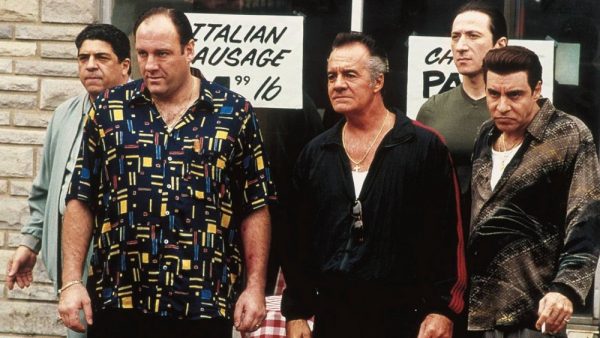The Sopranos was a watershed moment for television; as the first serialized mainstream drama, it catalyzed what is the golden era of television (now). That said, television has changed a lot since Tony Soprano first visited his therapist to talk about strangling relocated informants, his mother, and ducks.
Now, small-screen production value has become so shiny and new that audiences have become spoiled rotten. That which was innovative 20 years ago is run-of-the-mill today. It’s important to remember that The Sopranos was just figuring things out—setting a precedent. Those just discovering it for the first time in 2020 aren’t going to praise it as the “greatest show of all-time,” they’ll call it good, but not great (especially in the first slower half, when it didn’t know what it wanted to be). That doesn’t mean you have those people “whacked” or shoot them on a boat whose interior doesn’t jive with its exterior (R.I.P. “Pussy”). Disregarding reverence and nostalgia, let’s do an honest review of The Sopranos.
Cover Photo: Home Box Office (HBO)
Brutally Honest Movie Review: ‘Hocus Pocus’ Isn’t Nearly What It Used to Be
Mandatory Staff Picks: Top 10 TV Shows For Binging Their First Season (That You Can Successfully Stop After)
Visit the Mandatory Shop for great deals on your very own Mandatory merch.
Follow Mandatory on Facebook, Twitter, and Instagram.
The Sopranos Is Good But Not Great
-
Boy will be boys (or rather, Tony will be Tony).
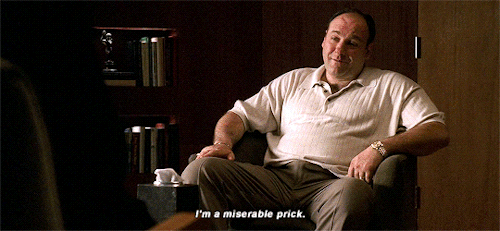
There would be no Walter White, Dexter Morgan, or Don Draper (the creator of Mad Men was a writer on The Sopranos) without Tony Soprano—he’s television’s first great anti-hero and damnation is his mistress. That said, Tony’s arc is an endless (yet, charismatic) circle of self-sabotage: he likes titty clubs, gambling (an issue that appears as if from nowhere), and power (not to mention food)—the boss does what he wants, Carmella and creepy priests be damned.
Still, we want Tony to get better, or at least learn something. Instead, he just gets worse. Tony and his crew justify their actions as that of soldiers, and while a few hellish dreams and visits to physics prove entertaining, it doesn’t always make for the best television in the long run. Don’t get us wrong, James Gandolfini's performance is electric, but his character doesn’t necessarily subvert contemporary expectations; he’s a black hole gangster and his own worst enemy (a point made on every streaming service in 2020).
Message: Being selfish/greedy is bad.
-
So why the therapy?
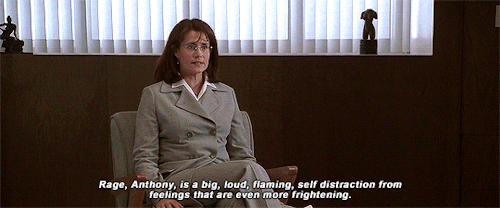
On paper, the whole “mob boss attends therapy” is a riveting concept, and it results in interesting dialogue. Clearly, in 1999, seeing a shrink (among other things) was frowned upon. Not only does it almost get Tony whacked (by his mother and uncle), but is a source of a lot of contention for Tony—he’s ashamed of his meetings with Dr. Melfi and often stops seeing her, but always goes back. A. Why would a shrink ever agree to treat a mobster? B. Why does it take her six seasons to realize therapy cannot help him?
In the pilot, Carmella tells Tony, “Psychology doesn’t address the soul—that’s something else but, this is a start.” Well, that’s all it was. A start. After a while, the ethical dilemma disappeared and Lorraine Bracco was used less and less (until the writers defaulted to sexual assault?).
-
Et tu, Ma Soprano?
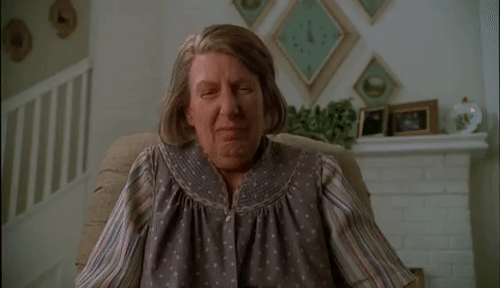
Like all men, Tony seeks therapy due to his mommy issues. And that always has potential, especially when she tries to have you killed for rolling around the house in your pajamas one too many times. Unfortunately, the tragic and untimely death of Nancy Marchand put a kibosh to this entire plotline is probably why the whole therapy thing fell apart.
On top of that horrible episode where they copy and pasted old scenes/used bad CGI to give us some closure with the character (it didn’t work), Livia Soprano’s departure is when the show started to become recognizably inconsistent.
-
Weak antagonists (if we can even consider them that).
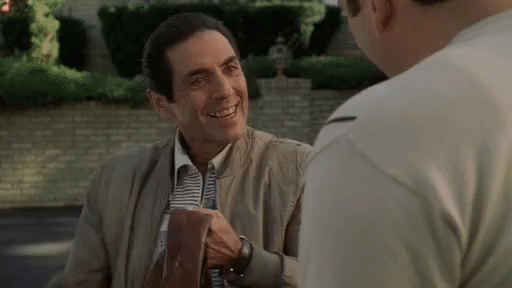
Rolling Stone named Livia Soprano No. 3 on its list of “40 Greatest TV Villains of All Time.” Before Marchand’s death, the writers planned to have her character testify against Tony in season three. When this didn’t happen, The Sopranos doubled-down on Tony’s periodic self-destruction, and no true antagonist ever presented themselves. Whether it be Phil Leotardo, Richie Aprile, Ralph Cifaretto, or Tony Blundetto, no “enemy” was ever as memorable/intimidating/formidable as a Gus Fring, Joffrey Baratheon, or Al Swearengen. The gang wars could've simply hit harder with two heavyweights going head-to-head. No. Tony will always be the heaviest.
-
Random characters appear as if from nowhere (and then disappear).
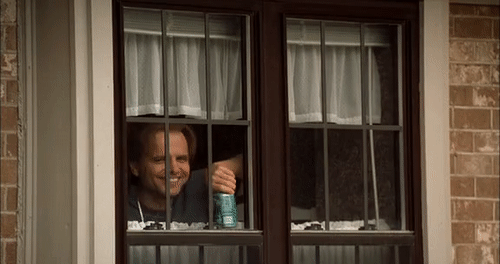
The Sopranos loved to kill off characters every season. Out with the old, in with the new (s). The problem with nobody being safe (sort of) is that new characters have to be introduced each season as if they're already established. Ralph just randomly shows up as a longtime friend of Tony in season three, AJ’s girlfriend Devin appears in season four and five before disappearing (and is never mentioned again), the whole Furio and Carmella romance plot makes next to no sense (contrived melodrama so that Tony and Carmella can have that epic blowout), and Bert is a high ranking member of the family by the final season despite not being around as long as other characters. Every new character that popped up was ultimately underdeveloped; only existing to either be killed off or further develop the core characters.
The one exception here is always the Russian from season three's "Pine Barrens." That guy is still off in the woods somewhere and we wouldn't have it any other way.
-
The kids.

Tony’s balancing act (of his two families) is one of the best aspects of The Sopranos thanks in large part to Gandolfini and Edie Falco. Jamie-Lynn Sigler’s Meadow and Robert Ller’s A.J. served next to no purpose. Sorry guys. It's not your fault. Shameless' whole gimmick puts its kids at the center of all the melodrama and, let's face it, fails.
-
The timeline is a mess.
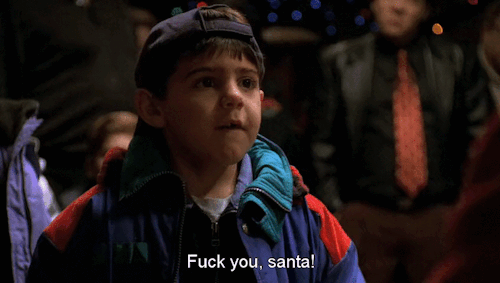
Let’s continue by remarking on the fact that most of The Sopranos’ season-ending cliffhangers are left unresolved or are not addressed until midway through the following season. Each season feels like a quasi-standalone (minus the broad strokes). This is why, when binge-watching the show today, all of its plot holes and narrative inconsistencies become wildly apparent.
Take Christopher’s father. Christopher will tell a story about the time he spent with his father and the next season he'll say his father died when he was just a baby. Another example is Sal’s tenure with the FBI. Sal claims to have only been an informant for a year; however, in season three, there’s a 1995 Christmas flashback where Sal is wearing a wire (years before his previous claim). At its core, The Sopranos is a show filled with stellar symbolism, writing, and acting; it’s a show filled with great moments. It’s not very concerned with the details.
-
Sal, The FBI Informant.
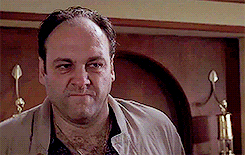
When Sal “Pussy” Bonpensiero disappears at the end of season one, everyone knows Sal is an informant (even the audience). When he returns in season two, claiming to have been in Puerto Rico, Tony just lets him back into the crew? Surprise, surprise, he’s an informant. And then Tony (and we) fall in love with him. As Skip tells Sal, "Do what you do to a girl you wanna fuck, make him love you." Sal’s demise is one of the series’ greatest moments, albeit predictable and a bit contrived.
-
Another instance.
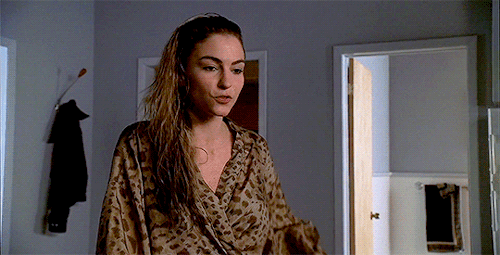
Adriana is perhaps the most underrated character in all of The Sopranos. That scene where she confesses being an informant to Christopher is absolutely heartbreaking. Still, why did she flip? Because she met an undercover FBI agent in a store and they immediately became best friends? Talk about contrived. Nothing about that plotline felt organic other than the brilliant acting of Drea de Matteo and Michael Imperioli.
-
The ending/fade to black.
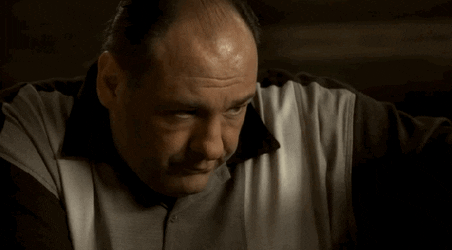
A lot is going on in that final scene. Whether you agree with the decision to leave The Sopranos ending ambiguous, from its camera angles (aligning themselves with Tony’s POV...which is arguably why we can assume he died) and throwaway shots to symbolism, it’s brilliantly crafted. However, the suggestion that Tony either died or spent the rest of his life paranoid, means he’s the same person he was at the beginning of the series. There’s no real message or point. An ending that has fans debating until this day isn’t provocative because of who Tony Soprano became, just whether or not he’s alive.
The Sopranos is a great show because of its quiet, lurking sense of realism (and comedic surrealism). It’s a good show because of its retrospective shortcomings, and perhaps because it's not as fresh and exciting as everything we've been conditioned/distracted with today. Fuck you, Marvel.
Just kidding, take our money, Disney+.
